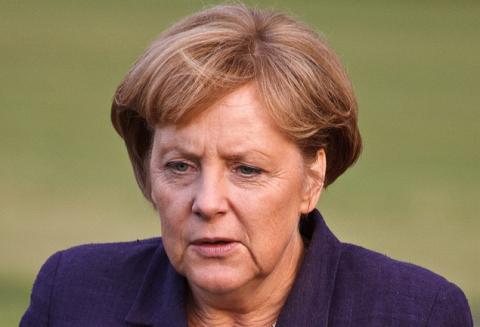The Greek election and Germany's free-riding

As long as this crisis is pushing Germany’s borrowing costs to zero, and causing tsunamis of capital to shift from Italy and Spain to its own enfeebled banks, Germany will not be eager do anything about it. By Yanis Varoufakis.
The frenzy of reporting on the Greek election is coming to a close. The world is now, quite understandably, swivelling its antennae toward Spain, Italy, Mexico and the G20. It is, therefore, a good moment to take stock of the main lesson the Greek crisis’ recent twist should teach a wary world: Beware of free-riders paralysed by the fear of others’ free-riding!
The Greek people voted in favour of a simple proposition: Bow to a loan agreement that is commonly known to be unsustainable but which Europe insists upon. Why? To buy time in the hope that the rest of Europe will, in the meantime, find some workable solution within which Greece may have a future.
A couple of weeks before that, the Irish people voted ‘yes’ in a referendum to a Fiscal Pact commonly known to be unworkable and impossible to implement but, nonetheless, a Pact that Europe insisted that the Irish must adopt (or else!). Why? Again to buy time in the hope that, meanwhile, the rest of Europe will work out policies that will allow Ireland to breathe.
In the very same period, the governments of Spain and Italy, while sinking fast into the same mire that has consumed Greece, Ireland and Portugal, are committing to austerity policies that they know will accelerate that ‘sinking feeling’. Why? Because it is expected of them to do so and they hope that, before long, the rest of Europe will end its denial and create institutions that will allow their countries to stop the rot.
Thus the deficit countries, the so-called periphery, are free-riding. They keep doing as they are told hoping against hope that the rest of Europe will ‘do the right thing’ (instead of just committing to ‘doing it’). But, who is this ‘rest of Europe’ that will sort things out? The answer, of course, is Germany. But Germany is itself paralysed not only by the fear of the periphery’s free-riding but also by a penchant towards free-riding of its own.
Germany free-riding on the crisis’s coattails? But of course. As long as this crisis is pushing Germany’s own borrowing costs to zero, and causing tsunamis of capital to shift from Italy and Spain to its own enfeebled banks, Germany’s eagerness to sort this crisis out is severely circumscribed. Or, at the very least, weakened. Especially if crisis resolution requires large steps that will diminish Germany’s own relative power within Europe. For instance, why should the Federal Republic tie itself irreversibly to the euro-mast (by means of a unification of the Eurozone’s banks or debt mutualisation) when it is benefitting from the current state of affairs not only in terms of the financial ebbs and flows but also politically (i.e. in terms of ever increasing bargaining power vis-à-vis deficit nations like France, Italy and Spain)?
The Greek election is about to produce a government whose raison d'être is to continue the sort of free-riding that is wrecking Europe. It is the latest reflection of a common thread of determined free-riding that runs throughout the Eurozone, connecting the Greek vote, the Irish referendum, Spain’s and Italy’s reluctance to speak out against the silliness imposed upon them, and of course Germany’s obstinate denial of the slow-motion train wreck that is the Eurozone. Everybody free rides at the expense of everyone else, hoping that the rest of Europe will sort things out. The end result is a postmodern variant of Thomas Hobbes’ state of nature, which guarantees that the euro’s life will prove nasty, brutish and short. {jathumbnailoff}
Image top: dirk@vorderstrasse.de.
